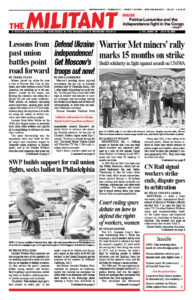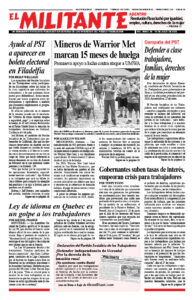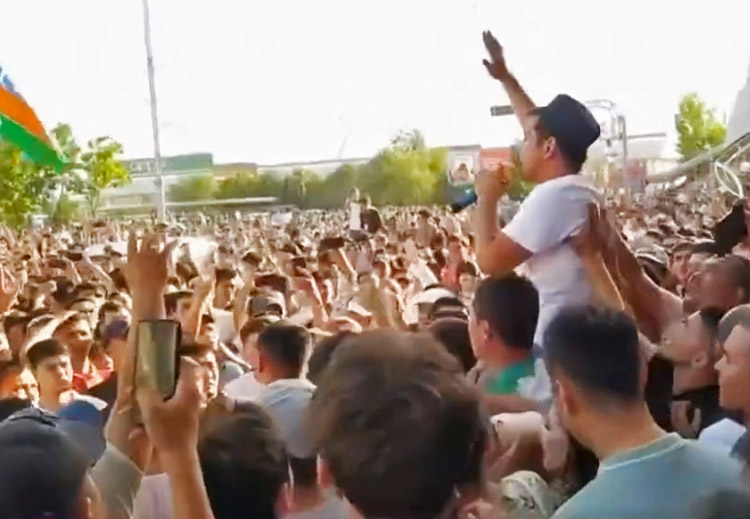The authoritarian government of Uzbekistan in Central Asia — an “ally and important partner” of Moscow — was forced to back off efforts to strip autonomous status from Karakalpakstan after mass protests broke out there July 1-2. The region has held this status since V.I. Lenin fought to establish the Union of Soviet Socialist Republics as a voluntary federation of republics after the Bolshevik Revolution. The Karakalpaks are a minority Turkic people with a separate language.
After the Uzbek regime of President Shakvat Mriziyoyev announced a new draft constitution that would eliminate the autonomous status of Karakalpakstan, and deny it the right to call for a referendum on whether to secede, thousands of people massed on the streets of Nukus, its capital and one of Uzbekistan’s largest cities.
Barricades went up and some protesters tried to storm government buildings. Police imposed a harsh crackdown, killing at least 18 and wounding hundreds. Authorities declared a monthlong state of emergency. The guarantee of autonomy to Karakalpakstan had been carried over after Uzbekistan gained independence in 1991 with the breakup of the Soviet Union.
This was the second upheaval in the region this year. Mass anti-government protests broke out in neighboring Kazakhstan in January. Moscow led a brief military intervention to prop up the Kazakh government with forces drawn from nearby former Soviet republics.


